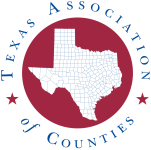Publications
The Role of Texas Counties
A Dozen Things Counties Do
- When you vote, the integrity of the election is supervised by either your county clerk, county tax assessor-collector or your county’s elections administrator. The Texas Association of Counties reports information on recent county elections.
- If a hurricane, tornado, pandemic or other natural disaster occurs, the county judge, acting in his/her role as director of emergency management, issues emergency and disaster declarations. The judge may have an emergency management coordinator who serves under the judge or commissioners court.
- In the COVID-19 pandemic, county health departments investigate suspected cases of pandemic disease. Many health or hospital districts operate on the county level.
- Everyone outside of a municipality (at least 25% of Texans) who needs emergency protection will call a county sheriff. Your sheriff is responsible for enforcing the criminal laws of the state of Texas. They are also in charge of running the county jail.
- Violations of state law are prosecuted by county attorneys (class A & B misdemeanors), district attorneys (felony offenses), criminal district attorneys (prosecute all levels from class C misdemeanors in Justice Courts to capital murder in District Courts), and county attorneys with felony responsibility (prosecute all levels, Class C to capital murder). These occur in Justice Courts, Constitutional County Courts, County Courts at Law and District Courts. Those accused of Class C misdemeanors outside of city limits have their day in court before a justice of the peace, a county official.
- Those convicted of lesser crimes against the state (Class A & B misdemeanors) may serve time in county jails.
- The loved ones of a deceased Texan will rely on a county court to probate his or her will.
- Roads and bridges outside of cities are maintained and planned by county governments (unless they are big enough to be state or federal roads). Counties also participate in regional transportation planning.
- The records of everyone's birth, death and marriage are registered with the county.
- If you have cattle, your brand is registered with the county. If you have a local business, its name is registered with the county so no one else can use it.
- Counties provide most of the funding to run State District Courts, Constitutional County Courts, County Courts at Law and Justice of the Peace Courts.
- Every Texas resident lives in a county, so county government is the only form of local government that provides services to every Texan.
See the Texas Counties Deliver videos and website, which explain the duties of Texas county officials and the history and functions of Texas county government.

